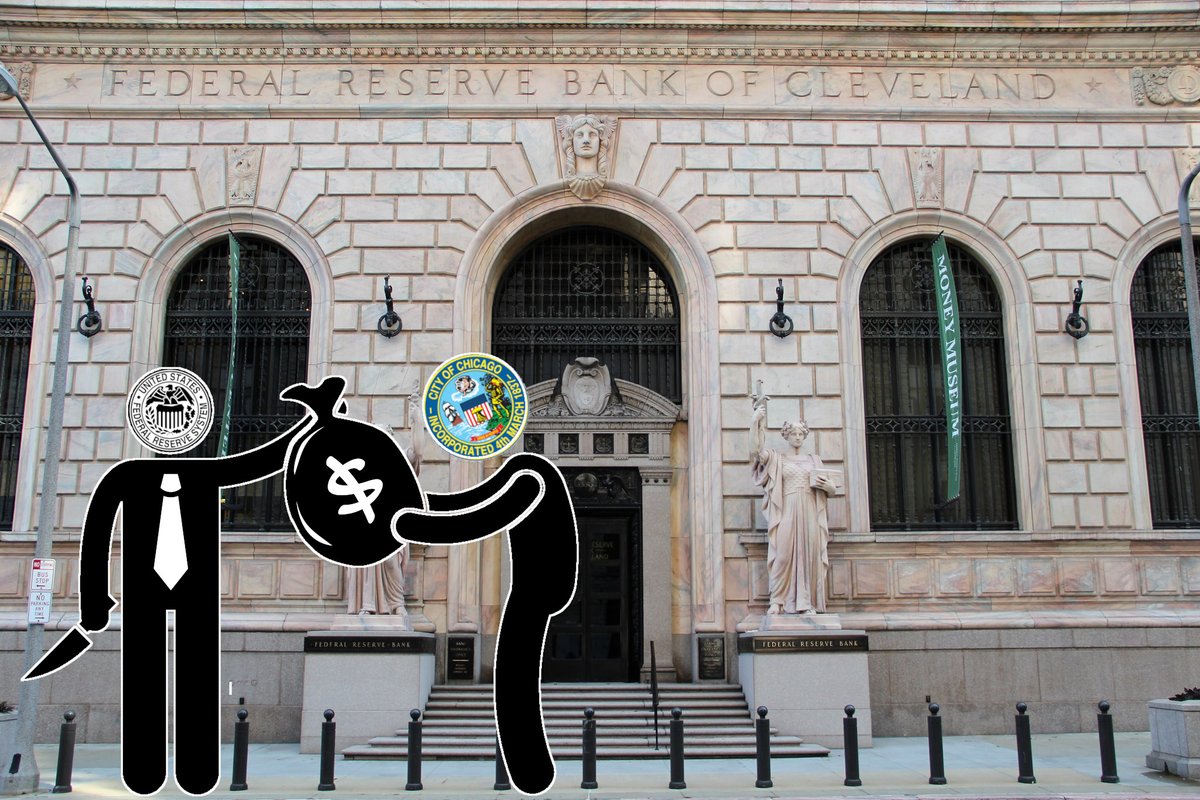
The scariest zombies this Hallowe'en aren't trick-or-treating, they're the zombie corporations that are borrowing cheap money from the Fed, declaring special dividends and stock buybacks, shambling on despite their inevitable demise.
pluralistic.net/2020/09/28/cyb…
1/
pluralistic.net/2020/09/28/cyb…
1/

Wage stagnation, crushing consumer debt and mass layoffs means that no matter how much money we give these zombie companies, they're not going to create jobs or invest in new capital - the only people with money are their shareholders, who don't need their products.
2/
2/
Meanwhile, the same Fed that is offering a public subsidy to the richest people in America in the form of preferential interest rates in corporate loans is gouging state and local governments whose tax-bases have collapsed.
dailyposter.com/p/how-the-fed-…
3/
dailyposter.com/p/how-the-fed-…
3/
As @matthewccook5 writes for the @dailyposter, "budget-strapped states and cities are being forced to choose between high-interest loans or mass layoffs of teachers, firefighters, emergency workers and other public-sector employees."
4/
4/
A coalition of grassroots groups and state/local politicians have called upon the Fed to offer states and cities the same interest rates that blue-chip zombies are getting.
5/
5/
This wouldn't just help avoid mass layoffs and fund desperately needed services to residents whose lives were shattered by covid, it would also let cities roll over their Wall Street debt, which currently accounts for $160b/year in interest payments alone (!).
6/
6/
What could our state and local governments do this year if they didn't have to shell out $160b in interest to Wall Street?
* help 13m families avoid eviction by covering their annual rent
* provide all 31.5m unemployed workers $600/week for 8 weeks
acrecampaigns.org/wp-content/upl…
7/
* help 13m families avoid eviction by covering their annual rent
* provide all 31.5m unemployed workers $600/week for 8 weeks
acrecampaigns.org/wp-content/upl…
7/
The Fed has provided unlimited liquidity for corporate junk bonds, but its $500b Municipal Liquidity Facility is dormant, having been used just twice since the start of the crisis for a total of $1.6b. That fund lends at 0.5%, but cities and states can't get at it.
8/
8/
Corporations get a great deal, states not so much.
Chevron was able to borrow for 0.9% over 4.5 years; the State of Wisconsin, which has the same credit rating as Chevron, is borrowing at 1.28% over 3 years.
9/
Chevron was able to borrow for 0.9% over 4.5 years; the State of Wisconsin, which has the same credit rating as Chevron, is borrowing at 1.28% over 3 years.
9/
Phillip Morris sold its bonds to the Fed at 0.9%. The State of Kentucky, which has the same credit rating as Morris, is paying 2% over 3 years.
The Fed offered NYC 1.9% over 24 months - a worse deal than they'd get from Citibank.
10/
The Fed offered NYC 1.9% over 24 months - a worse deal than they'd get from Citibank.
10/
That slumbering Municipal Liquidity Fund is overseen by Kent Hiteshew, the Obama-era bankster enabler who bailed out the predatory bondholders who had buried Puerto Rico under an avalanche of debt. He's a finance crime lifer: ex-Bear Sterns, ex-Drexel Burnham Lambert.
11/
11/
By starving cities and states of credit, Hiteshew is able to pile up lucrative business for Wall Street, which is able to borrow Fed money for almost nothing, then turn around and loan it to state and local governments at massive markups.
12/
12/
"The Fed has two bazookas. One of them is a municipal bazooka and the other is a corporate credit bazooka. They have the municipal bazooka setting on low and the corporate bazooka setting on high." -@NathanTankus
13/
13/
Image:
Gan Khoon Lay (modified)
thenounproject.com/term/loan-shar…
CC BY
creativecommons.org/licenses/by/4.…
C Hanchey (modified)
flickr.com/photos/2195356…
CC BY-NC
creativecommons.org/licenses/by-nc…
eof/
Gan Khoon Lay (modified)
thenounproject.com/term/loan-shar…
CC BY
creativecommons.org/licenses/by/4.…
C Hanchey (modified)
flickr.com/photos/2195356…
CC BY-NC
creativecommons.org/licenses/by-nc…
eof/
• • •
Missing some Tweet in this thread? You can try to
force a refresh










